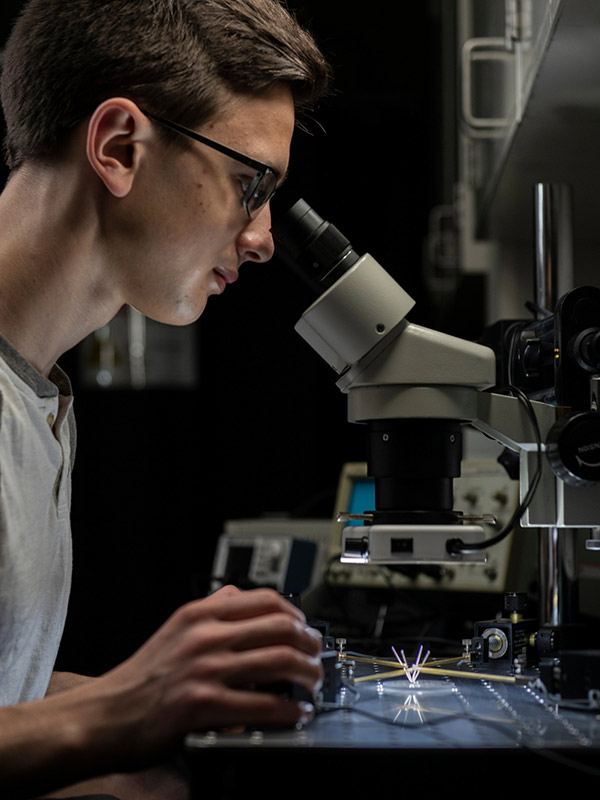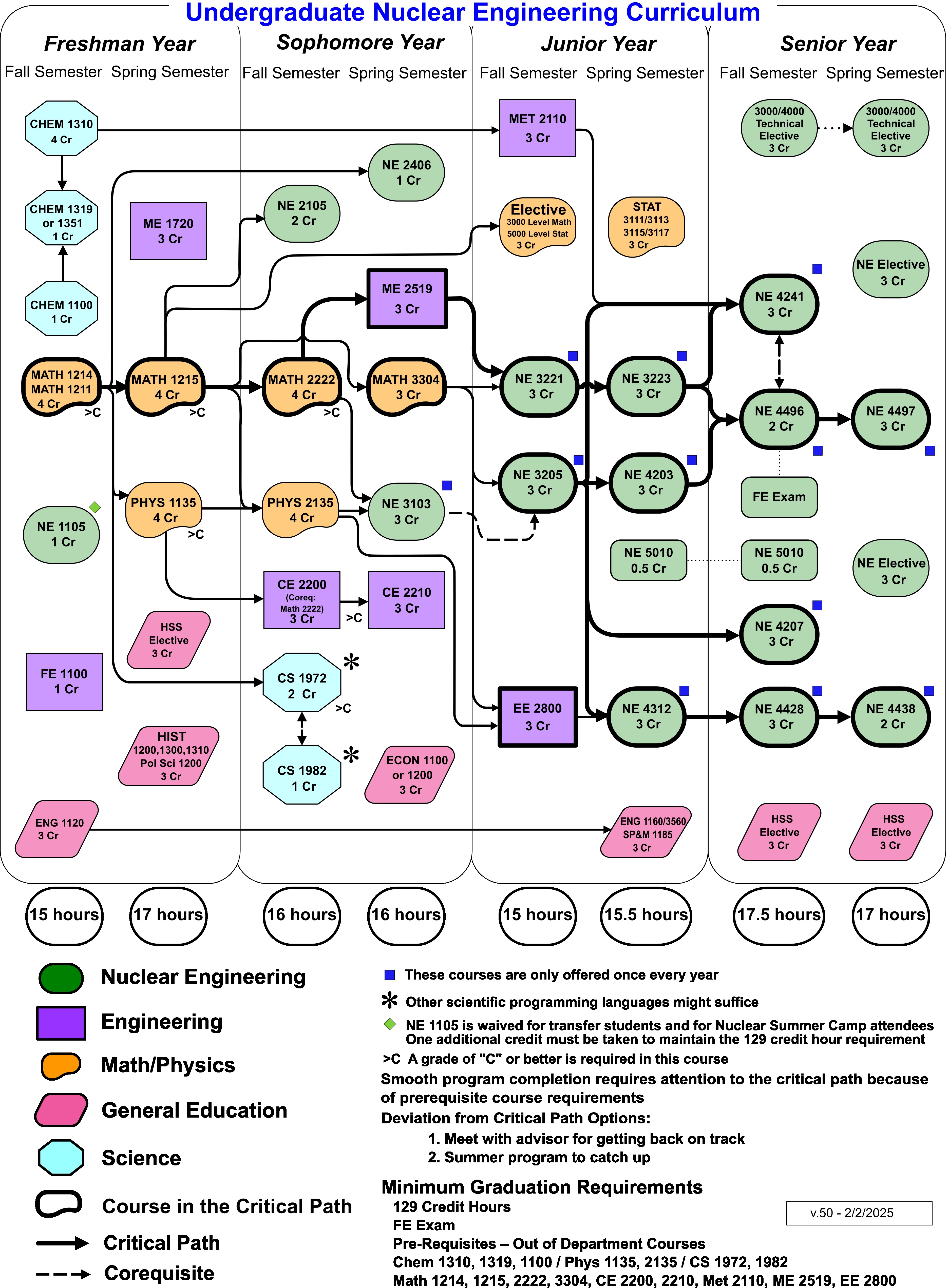Nuclear Engineering and Radiation Science
Bachelor's Degree in Nuclear Engineering
Earn a Bachelor's Degree in Nuclear Engineering
You will be prepared to tackle challenges of the future using nuclear and radiation-based solutions with your degree in nuclear engineering from Missouri S&T.
The program focuses on using team-oriented and hands-on experiential methods to show you how to approach and solve engineering challenges. As a nuclear engineering student, you will be uniquely prepared to hit the ground running after graduation.
Want to Know More?
Get info on our program, scholarships, how to visit campus, admissions and more. Take the next step in solving for tomorrow!
Economics and Nuclear Engineering
Many of our Nuclear Engineering students have taken advantage with our partnership with the Economics Department. Students can earn an Energy Economics certificate, or even a second major in Economics, while completing their Nuclear Engineering coursework. More Nuclear Engineers have taken advantage of this program than any other engineering program on campus, and it's making a difference in their futures.
Degree Information
Your Career in Nuclear Engineering
As a nuclear engineer, you will develop and promote the use of energy released from nuclear fission, nuclear fusion, and radioactive material.
Nuclear power plants operating in the United States produce about 20% of our nation's electricity. Nuclear power technology produces about 60% of our nation’s carbon-free electricity, reduces the emission of greenhouse gases like carbon dioxide significantly, and contributes to a cleaner environment. The same technology supports propulsion of US military submarines and aircraft carriers. Radioactive materials are also used in medicine for diagnostic and therapeutic purposes.



Follow Nuclear Engineering and Radiation Science